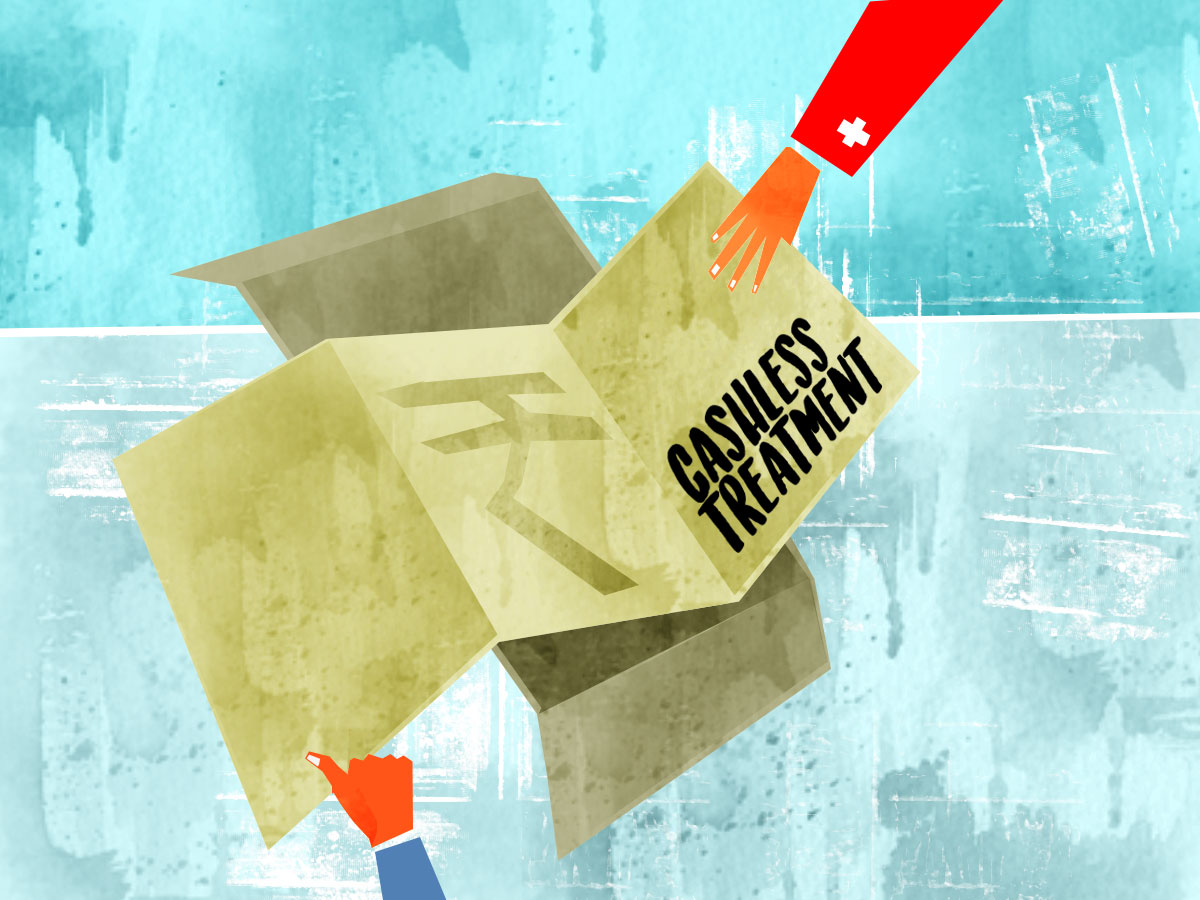 | « Back to article | Print this article |
Sanjib Jha, CEO, Coverfox Insurance Broking, answers your health insurance related queries.

Please mail your queries to getahead@rediff.co.in with the subject line 'Ask Sanjib' and he will answer all your health insurance queries.
Vilas Lakhpati: I read your today's article about Mediclaim: What You Must Know. Thank you for some important information and points shared. I have some questions about the Mediclaim policy.
I have been buying a Mediclaim policy since 2007 and I have not claimed it till last month.
Last week I was hospitalized for gall bladder stone surgery. When I asked the hospital to use the cashless option on my Mediclaim policy for claims they gave an estimated cost of about 1 lakh. And same if I claim myself, they gave an estimated cost near about 55 thousand.
1. Why and what is the difference between these charges? How did the TPA approve cashless? Is there any guideline or standard process for hospitals that can claim more charges in cashless options?
2. Why do cashless charge more? Due to this type of charges for cashless claims the sum insured amount decreases after treatment. We can utilise the same difference charges amount for another treatment.
Coverfox: Hi Vilas, in order to understand the difference in the estimated costs, you should ask the hospital on what parameters they have estimated the two costs. Questions on treatment protocol, room charges and type, doctor’s fee etc., should be asked.
When choosing cashless treatment, the patients often opt for the best facilities that they may not have opted for otherwise. Sometimes hospitals may run some additional tests as well in order to avoid back and forth on your claim settlements, when it is a direct transaction between insurer and the hospital.
However, if you feel that you are being overcharged, then you should report any discrepancy in what you are being charged for, to the insurer. Insurance companies take such cases very seriously, which is why insurers have preferred network hospitals that agree on a certain pricing for various treatments and other tariffs.
In case it is observed that there is any abuse of cost or sum insured then there is a chance of being de-paneled and hence a check is in place.
Bhupesh Kothari: This is Bobby here and have a few questions related to your article (enclosed), "Mediclaim: What You Must Know"
Would like to know, with your experience in this field, as to:
1. Which mediclaim policy or policies, currently in INDIA and especially Mumbai has all the required coverage as mentioned in your article
2. We are a family of 3 with a school going child and both of us are aged 45
3. Have acquired diabetes a few months ago and have hepatitis B and kidney stones
4. What should be the approximate premium, per annum to cover all that is mentioned in your article and keep us safe from the issues arising out if and when we really require hospitalisation and save us from rejected claims.
5. Presently we are covered under Mediclaim policy from "Star Health"
Would be highly obliged should you guide us on the above to make our lives easier.
Coverfox. Hi Bhupesh, there is no ‘one size fits all’ concept with health insurance. Health insurance is based on preferences of the customer and then the premium quotes are generated based on those factors. You can use insurance broking websites to compare the offerings on the mentioned 5 factors and the premiums for various policies that will help you to compare their benefits and make an informed choice. Depending on your priorities, weigh out the factors and decide accordingly.
Since you have mentioned about your family, you can opt for Family Health Insurance policies with an appropriate sum insured to cover your entire family. Like I have mentioned before, premiums are unique to individuals depending on their preferences, the sum insured they deem suitable, the riders they choose, their medical history etc.
What you can do to ensure you buy the correct policy for yourself is to evaluate policies carefully, keeping in mind the 5 important parameters.